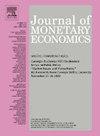如何资助非正规和虚假索赔的失业保险:来自塞内加尔的证据
IF 4.3
2区 经济学
Q1 BUSINESS, FINANCE
引用次数: 0
摘要
本文研究了在正式工人只占劳动力市场的一小部分,非正式工人可以为失业保险(UI)福利提交欺诈性索赔的背景下,提供失业保险(UI)福利的福利效应。我们对这些特征进行建模,并允许不同程度的执行和不同的资金来源。然后,我们通过在塞内加尔进行定制劳动力调查来估计模型的关键参数。我们的研究结果表明,流动性收益是巨大的,而工人对失业保险福利的道德风险反应相对较小:一美元的失业保险福利产生60-90美分的消费当量收益,这比美国校准的可比估计高出3到16倍。然后,我们证明了福利收益取决于计划设计:通过工资税资助的UI提供了最大的福利收益,但当正式工人很少且欺诈性索赔率很高时,它变得不可行。另一方面,通过消费税资助的失业保险带来的福利收益较低,但在高非正式性和虚假申报的情况下仍然可行。本文章由计算机程序翻译,如有差异,请以英文原文为准。
How to fund unemployment insurance with informality and false claims: Evidence from Senegal
This paper studies the welfare effects from the provision of unemployment insurance (UI) benefits in a context where formal workers represent only a small proportion of the labor market and informal workers can submit fraudulent claims for UI benefits. We model these features and allow for varying degrees of enforcement and different funding sources. We then estimate the model’s key parameters by conducting a custom labor force survey in Senegal. Our findings show that the liquidity gains are large and the moral hazard response to the UI benefits among workers is relatively small: an extra dollar of UI benefits yields a consumption-equivalent gain of 60–90 cents, which exceeds comparable estimates from U.S. calibrations by a factor of three to sixteen. We then show that the welfare gains depend on the program design: UI funded through payroll taxes delivers the greatest welfare gains but becomes infeasible when there are few formal workers and high rates of fraudulent claims. On the other hand, UI funded through consumption taxes delivers lower welfare gains but remains feasible with high informality and false claims.
求助全文
通过发布文献求助,成功后即可免费获取论文全文。
去求助
来源期刊

Journal of Monetary Economics
Multiple-
CiteScore
7.20
自引率
4.90%
发文量
90
审稿时长
74 days
期刊介绍:
The profession has witnessed over the past twenty years a remarkable expansion of research activities bearing on problems in the broader field of monetary economics. The strong interest in monetary analysis has been increasingly matched in recent years by the growing attention to the working and structure of financial institutions. The role of various institutional arrangements, the consequences of specific changes in banking structure and the welfare aspects of structural policies have attracted an increasing interest in the profession. There has also been a growing attention to the operation of credit markets and to various aspects in the behavior of rates of return on assets. The Journal of Monetary Economics provides a specialized forum for the publication of this research.
 求助内容:
求助内容: 应助结果提醒方式:
应助结果提醒方式:


